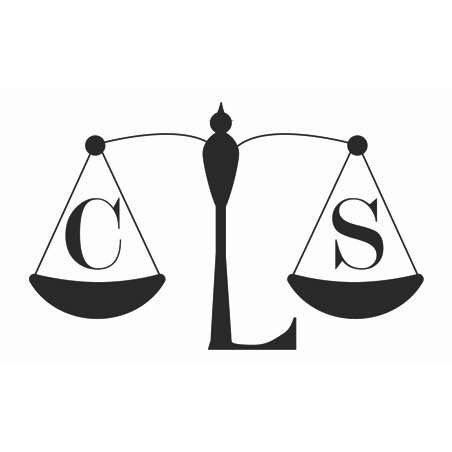Best Energy Regulatory Law Lawyers in Yemen
Share your needs with us, get contacted by law firms.
Free. Takes 2 min.
Or refine your search by selecting a city:
List of the best lawyers in Yemen
About Energy Regulatory Law in Yemen
Energy Regulatory Law in Yemen governs the production, distribution, and consumption of energy resources such as electricity, oil, gas, and renewables. This area of law is concerned with setting the rules and policies under which public and private entities generate, transmit, and sell energy. Oversight is typically exercised by government ministries and regulatory agencies, which ensure compliance, licensing, tariffs, and adherence to environmental and safety standards. Yemen’s regulatory framework is strongly influenced by national energy needs, economic considerations, and international agreements. Due to political and economic instability, the regulatory environment is dynamic and can be complex to navigate.
Why You May Need a Lawyer
Navigating Energy Regulatory Law in Yemen can be challenging for individuals and businesses. Common scenarios where legal assistance may be necessary include:
- Applying for or renewing energy generation or distribution licenses
- Disputes with government regulators or between private energy companies
- Resolving issues around tariffs, pricing, and compliance obligations
- Negotiating or drafting contracts for energy projects or services
- Advising on legal compliance for new energy ventures or investments
- Dealing with penalties or enforcement actions related to alleged regulatory breaches
- Understanding the implications of local, regional, or international agreements on energy operations
A lawyer experienced in Energy Regulatory Law can help ensure your interests are protected, guide you through regulatory processes, and represent you in negotiations or disputes.
Local Laws Overview
Yemen’s energy sector is primarily regulated through various laws, ministerial decrees, and government policy directives. Key aspects of local energy regulatory laws include:
- Licensing and Permits: Any entity involved in the generation, transmission, or distribution of energy must obtain appropriate licenses from the Ministry of Electricity and Energy or related authorities.
- Price Regulation: Energy prices, especially for electricity and petroleum products, are often subject to government control to ensure affordability for consumers.
- Foreign Investment: There are specific requirements for foreign companies investing in the energy sector, including partnership and ownership rules.
- Environmental Protection: Energy projects must comply with local environmental regulations, including impact assessments and emissions standards.
- Dispute Resolution: Most disputes are handled through administrative bodies or the courts, with a preference for mediation in some cases.
Because the country is going through ongoing reconstruction and development efforts, the legal environment is subject to change, and regional variations may exist.
Frequently Asked Questions
What government bodies regulate energy in Yemen?
The Ministry of Electricity and Energy is the primary regulatory body, alongside agencies such as the Yemen General Electricity Corporation and the Ministry of Oil and Minerals, depending on the energy sector involved.
Do I need a license to generate electricity for my business?
Yes, any entity generating, transmitting, or distributing electricity for commercial purposes requires a license from relevant authorities. Exceptions may exist for small-scale or off-grid generation.
How are energy prices determined?
Energy prices, particularly for electricity and petroleum products, are set or regulated by the government to ensure affordability and balance market needs.
What should I do if I have a dispute with an energy provider?
Disputes can often be resolved through negotiation or mediation, but failing an informal resolution, you may escalate your complaint to a regulatory body or the courts. Legal advice is recommended.
Can foreign companies invest in Yemen's energy sector?
Yes, but foreign companies must comply with local ownership and partnership requirements, obtain necessary permits, and follow special regulations applicable to foreign investments.
What are my environmental responsibilities as an energy producer?
Energy producers must comply with Yemen’s environmental protection laws, including conducting environmental impact assessments and adhering to emissions and waste disposal regulations.
Are there incentives for renewable energy projects?
There are occasional government or donor-led incentives for renewable energy, but these can vary based on current policy priorities and available funding.
What documentation is required for an energy project application?
Documentation typically includes business registration, technical feasibility studies, environmental assessments, and financial guarantees. Specific requirements will depend on the type of project.
Is energy theft or unauthorized connection a criminal offense?
Yes, unauthorized connection to the energy grid or theft of energy is considered a violation of Yemeni law and can result in penalties, including fines and possible criminal charges.
How can I stay updated on changes to energy regulations?
Consult the official notices from government ministries or seek guidance from a lawyer who monitors regulatory developments in the energy sector.
Additional Resources
If you require further information or assistance, the following resources can be helpful:
- Ministry of Electricity and Energy - the main regulatory body for electricity and energy projects
- Yemen General Electricity Corporation - manages public sector electricity and related services
- Ministry of Oil and Minerals - oversees oil and gas regulations and activities
- Chambers of Commerce and Industry - for support on energy-related business registration and compliance
- Environmental Protection Authority - for guidance on environmental regulations and permits
- Local law firms specializing in energy, business, and administrative law
Next Steps
If you need legal advice or representation in the field of Energy Regulatory Law in Yemen, consider these steps:
- Identify the specific issue you are facing, such as licensing, compliance, or dispute resolution
- Collect all relevant documents, such as contracts, licenses, government correspondence, and evidence of any dispute
- Consult a qualified lawyer who specializes in energy or administrative law for an assessment of your case
- Follow the lawyer’s guidance on filing applications, responding to regulatory actions, or resolving disputes
- Stay informed about legal and regulatory developments that may impact your rights and obligations
Legal matters in Yemen’s energy sector can be complex, and early legal advice is often crucial to safeguarding your interests and ensuring compliance with the law.
Lawzana helps you find the best lawyers and law firms in Yemen through a curated and pre-screened list of qualified legal professionals. Our platform offers rankings and detailed profiles of attorneys and law firms, allowing you to compare based on practice areas, including Energy Regulatory Law, experience, and client feedback.
Each profile includes a description of the firm's areas of practice, client reviews, team members and partners, year of establishment, spoken languages, office locations, contact information, social media presence, and any published articles or resources. Most firms on our platform speak English and are experienced in both local and international legal matters.
Get a quote from top-rated law firms in Yemen — quickly, securely, and without unnecessary hassle.
Disclaimer:
The information provided on this page is for general informational purposes only and does not constitute legal advice. While we strive to ensure the accuracy and relevance of the content, legal information may change over time, and interpretations of the law can vary. You should always consult with a qualified legal professional for advice specific to your situation.
We disclaim all liability for actions taken or not taken based on the content of this page. If you believe any information is incorrect or outdated, please contact us, and we will review and update it where appropriate.
Browse energy regulatory law law firms by city in Yemen
Refine your search by selecting a city.









